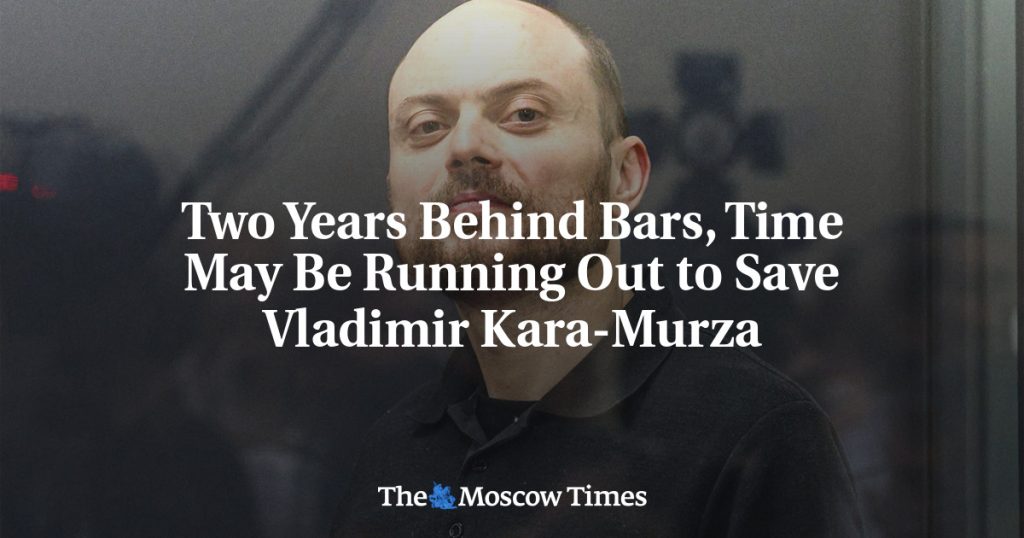The focus on freeing jailed Kremlin critic Vladimir Kara-Murza from his Russian prison has intensified with new charges that could extend his 25-year prison sentence. Despite efforts from his family and colleagues to secure his release through a prisoner exchange, wider diplomatic dynamics threaten to hinder their efforts. Kara-Murza, a critic of the invasion of Ukraine, was convicted of treason last year and has been held in a Siberian penal colony. His health has deteriorated in prison due to a nerve condition resulting from two poisoning attempts, and the recent death of fellow dissident Alexei Navalny has heightened fears for his well-being.
Facing new charges for failing to add a label indicating his “foreign agent” status to his social media pages, Kara-Murza’s wife expects the courts to rule to extend his prison term, the harshest sentence for a political prisoner since the fall of the Soviet Union. While U.S. lawmakers have joined calls for his release and Washington has the power to swap him as a U.S. Permanent Resident, both the U.S. and the UK are facing obstacles in securing his freedom. The British Foreign Office has a strict embargo on prisoner exchanges and has ruled out a swap for Kara-Murza, despite repeated calls for his release.
Negotiating for the release of political prisoners is a sensitive and often controversial policy area, as seen in previous exchanges such as the swap of American basketball star Brittney Griner for Russian arms dealer Viktor Bout. While some argue that negotiating with hostile states can lead to the release of political prisoners, others warn that such trades could embolden oppressive regimes. Talks for Kara-Murza’s release are ongoing in multilateral forums, with countries with direct influence over Russia being involved in the discussions.
The urgency to free Kara-Murza is heightened by concerns for his health and safety in prison, as his wife fears he is at risk of dying due to deliberate abuse. The Kremlin has denied consular access to an independent doctor, and time is running out for diplomatic negotiations to secure his release. With a potential change in administration in the UK looming, there could be further delays in efforts to free him. The role of prisoners’ families in negotiations, as seen in the case of Nazanin Zaghari-Ratcliffe, can be crucial in pushing for the release of political prisoners.
As efforts continue to secure Kara-Murza’s release, his wife remains steadfast in her determination to fight for his freedom. Despite the challenges and obstacles faced in the negotiations, she refuses to give up on her husband and will stand by his side for as long as it takes. The parallels drawn with other high-profile cases of political prisoners highlight the importance of continued pressure and advocacy from international allies to secure the release of those unjustly detained. The support and engagement of governments, diplomats, and advocacy groups will be essential in the ongoing fight for justice and freedom for Kara-Murza and other political prisoners.


